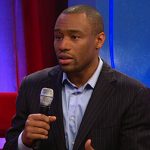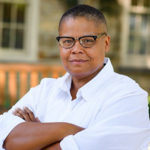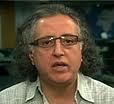CHALLENGING RACISM 3-Pack
3 CDs
Includes:
The Fragility of Whiteness
The great African American sociologist W. E. B. Du Bois in his 1903 classic book, The Souls of Black Folk, wrote, “The problem of the twentieth century is the problem of the color line.” Well, here we are in the 21st century and the color line and racial injustice remain front and center. Some white people have acknowledged racism as a major issue. Others when challenged are defensive and uncomfortable. The murder of George Floyd brought out multi-racial demonstrations against police violence and racial injustice. Monuments, statues and other symbols of oppression are toppled and Confederate flags are lowered. These are the first steps in a reckoning that is long overdue.
White Privilege
White privilege. What’s that? White people have choices and advantages simply because of the color of their skin. Many whites are unaware of it. Peggy McIntosh, a noted women’s studies scholar in her classic essay “White Privilege: Unpacking the Invisible Backpack,” wrote: “I was taught to see racism only in individual acts of meanness, not in invisible systems conferring dominance on my group. I have come to see white privilege as an invisible package of unearned assets that I can count on cashing in each day, but about which I was “meant” to remain oblivious. White privilege is like an invisible weightless knapsack of special provisions, maps, passports, codebooks, visas, clothes, tools and blank checks.”
Dismantling the System
Is it starry-eyed to think about not just regime change but something much larger: system change? The systemic failures of the current crisis and the calamitous fissures it has exposed has raised the question of the efficacy of reform, half-measures and tinkering around the edges. When under duress, the system is agile enough to make some concessions while crucially leaving the fundamental structures of power intact. From the outside systems can look invincible and impregnable. Just tell that to Louis the XVI in 1789 or the Czar in 1917 or the Shah of Iran in 1979 or Hosni Mubarak in 2011. The noted writer, Ursula LeGuin reminds us, “We live in capitalism. Its power seems inescapable. So did the divine right of kings. Any human power can be resisted and changed by human beings.”
Speakers

Robin DiAngelo
Robin DiAngelo, an award-winning scholar, is an Affiliate Associate Professor of Education at the University of Washington. She has been a consultant and trainer on issues of racial and social justice for more than twenty years. She is the author of the bestseller White Fragility: Why It’s So Hard For White People To Talk About Racism.

Michael Eric Dyson
Michael Eric Dyson, a globally renowned scholar of race, religion and contemporary culture, is the Centennial Chair and University Distinguished Professor of African American and Diaspora Studies at Vanderbilt University. A dynamic speaker, he lectures widely. Among his many books are April 4, 1968: Martin Luther King’s Death and How it Changed America, Tears We Cannot Stop, Holler If You Hear Me: Searching for Tupac Shakur, and Jay-Z: Made in America.

Marc Lamont Hill
Marc Lamont Hill is a professor of Media Studies and Urban Education at Temple University in Philadelphia. Ebony named him one of America’s 100 most influential Black leaders. He is the author of Nobody: Casualties of America’s War on the Vulnerable from Ferguson to Flint and Beyond.

Keeanga-Yamahtta Taylor
Keeanga-Yamahtta Taylor writes and speaks on Black politics, social movements, and racial inequality. She is a professor of African American Studies at Princeton. Her articles appear in The New Yorker, The Nation, The Guardian and Jacobin. She is the author of Race for Profit, How We Get Free and the award-winning From #BlackLivesMatter to Black Liberation.






Reviews
There are no reviews yet.